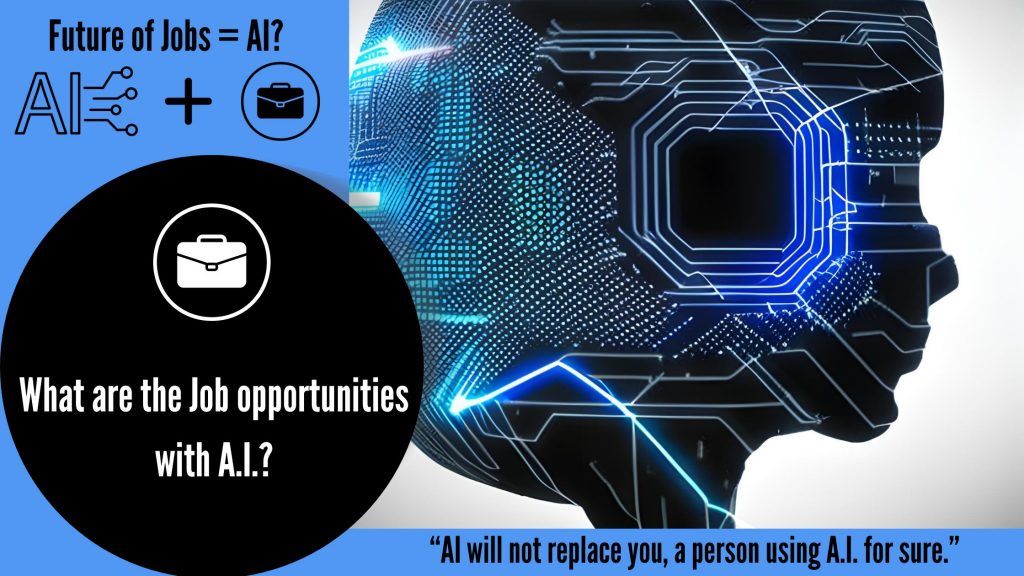
What is the Future of Business Administration Jobs in the AI Era
The rise of artificial intelligence (AI) is transforming the workplace across every industry. As a business administrator, AI promises to significantly impact your job—both positively and negatively. Many experts predict that AI will automate various routine tasks currently done by humans. But AI also presents new career opportunities for those willing to learn new skills. So, what exactly does the future look like for business administration jobs in the rapidly evolving AI era? Will these jobs disappear—or open new doors? Here’s a comprehensive look.
How AI Will Impact Business Administration Jobs
Automation of Repetitive Tasks
One major way AI will influence business administration jobs is through automating repetitive, routine tasks. AI-powered tools can quickly and accurately handle high-volume duties humans currently perform, like:
- Data entry
- Bookkeeping
- Document scanning
- Appointment scheduling
- Expense report approval
- Payroll processing
- Email triaging and responses
By automating these repetitive tasks, AI enables business administrators to focus their efforts on more strategic responsibilities. But this increased workflow automation could also reduce the overall need for administrators focused strictly on basic clerical duties.
Emergence of New AI-Related Job Roles
Even as AI assumes some menial tasks, it will give rise to new specialized job roles for business administrators. These roles include:
- AI coordinators: responsible for managing relationships between workers and AI systems.
- AI auditors: monitor AI system data and algorithms for accuracy and fairness.
- AI change managers: educate staff about evolving AI implementations and guide adaptation.
Additional novel job descriptions are likely to materialize that focus explicitly on AI application rather than general administration.
Need for Continuous Upskilling and Reskilling
With AI advancing at a staggering pace within organizations, merely learning skills once will no longer suffice. To stay competitive, business administrators must continuously update their skill sets through consistent upskilling and reskilling.
This involves proactively seeking formal learning opportunities like courses, certificates, conferences, mentorships and more. Fortunately, digital literacy is already second-nature for most business administrators. This makes the rapid self-education AI demands much less daunting.
Specific Changes AI Will Drive for Business Administrators
While the future remains unclear, experts and researchers expect AI to drive three predominant changes for business administration jobs:
Increased Focus on Strategic Thinking
Relieved of handling repetitive tasks, higher-level administrators can redirect their talent towards big-picture thinking. This involves identifying organizational challenges, then developing solutions through critical analysis and creative ideation.
With basic operations covered by AI, business leaders will expect administrators to exercise more independent strategic thinking. This consists of weighing alternative scenarios, assessing risks, and aligning decisions with overarching objectives.
Greater Demand for Data Analysis Skills
Data has become an invaluable business commodity—and that importance will only intensify with increasingly “intelligent” AI systems. As machine learning algorithms derive insights from vast datasets, organizations need people to correctly interpret the findings.
Expect a much greater emphasis on data literacy across business administration. Financial analysts will forecast using predictive models rather than old spreadsheets. Marketing administrators will pinpoint customer segments through analysis rather than intuitions. And project managers will rely more on data-driven decisions than gut feelings.
In particular, AI elevates the need for business administrators to think critically—questioning if data models make logical sense and if optimal actions follow. Data fluency will likely grow into a core competency for administrators rather than a nice-to-have.
Enhanced Communication and Collaboration Expectations
Despite impressive capabilities, even the most advanced AI lacks emotional intelligence and interpersonal awareness. Unlike machines, humans intrinsically understand subtle social dynamics that underpin effective teams, partnerships, and customer relationships.
These inherently human skills—nuanced communication, cultural awareness, creative collaboration, ethical leadership and complex problem solving—will only gain importance in an AI-powered business landscape.
Organizations will still need adaptable, well-rounded professionals to make thoughtful decisions and coordinate stakeholders. Expect elevated standards across the board for business administrators’ communication talents, emotional intelligence, and ability to collaborate smoothly with diverse colleagues and AI tools alike.
In Demand Business Administration Roles of the Future
While AI will shape all business administration jobs to some extent, its impact promises to be most transformative for these specific roles:
Human Resources
AI is poised to overhaul talent acquisition and management. Chatbots can screen initial job applicants through conversational interviews. Predictive algorithms can source qualified candidates. AI assessment platforms can evaluate skills and personality traits at scale for recruiting.
For HR administrators, opportunity awaits to leverage these emerging technologies. This includes configuring AI systems, gauging their effectiveness, and conveying implementation plans across the organization. With AI also entering performance evaluation, compensation planning and career development, HR roles will hinge more on maximizing human-AI collaboration.
Marketing & Sales
Modern marketing and sales run on data. AI excels at gathering customer insights, predicting buying behavior, personalizing messaging, and automating lead engagement. But human intuition remains instrumental for branding, relationship building and negotiating deals.
As sales administrators adopt AI for automating routine tasks, they’ll need to channel freed-up time towards high-value activities like strategic planning, account management, and consultative customer interactions. AI may handle initial lead scoring but relied upon sales administrators to determine ideal prospects and creatively convey value.
For marketing administrators, AI enables more targeted campaigns and refined audience segmentation. Yet striking the right tone and crafting compelling stories still requires human creativity. The modern marketer’s job is increasingly to empathetically understand customers, then coordinate AI tools to deliver hyper-personalized experiences.
Operations & Supply Chain
Inventory management. Route optimization. Predictive maintenance. Operations spans a plethora of complex responsibilities ripe for AI improvement. Digital assistants can track assets, sensor data can flag production issues, and analytics tools can model staffing needs.
The operational leader’s role in this technology-driven environment is oversight and governance. Supply chain administrators must audit AI system inputs and outputs while still planning long-term strategy. Project managers must monitor automated workflows while motivating cross-functional teams. Quality assurance relies on AI for catching defects plus administrators for upholding standards.
During crises and periods of disruption, organizations depend greatly on experienced operations leaders to spur informed decision making and stabilize workflows. So while much daily work becomes automated, savvy operational administrators remain indispensable.
Key Takeaways for Thriving as a Business Administrator in the AI Era
With AI infiltrating organizations, the playbook for business administration jobs is clearly changing. But rather than resist this shift, smart administrators should embrace it. Here are five essential strategies for not just surviving—but thriving—amidst the rise of enterprise AI:
Embrace Continuous, Lifelong Learning
Complacency has no place in the age of AI. With software capabilities constantly expanding, administrators must adopt a growth mindset centered on flexibility and perpetual education.
Diligently update your skill sets via courses, professional certifications, conferences, online tutorials, expert mentorships and more. The specific skills most vital today like data literacy or customer analytics may be obsolete in just five years. Lifelong learners know learning never stops.
Develop Strong Analytical Skills
Data analytics has become the rocket fuel propelling enterprises forward. Business administrators independent of function need fluency gathering, manipulating, interpreting and communicating data.
Practice conducting root cause analyses. Enhance your creative thinking to translate insights into inventive solutions. Sharpen your critical eye to catch faulty statistical assumptions. Ask good questions to enrich understanding. Lean heavily into learning both basic and advanced analytics skills most aligned to your domain.
Improve Communication and Collaboration Abilities
With information silos crumbling amidst digital disruption, adept collaboration is non-negotiable. Ensure you communicate complex ideas simply yet clearly for diverse audiences. Listen actively; synthesize viewpoints; find common ground.
Likewise, tune your emotional intelligence skills for navigating workplace relationships. Learn to identify teammates’ sentiments and motivations, even when unspoken. Lead with empathy and ethics no matter the situation. These “soft” human skills create welcoming environments for human-AI collaboration to thrive.
Consider Specializing in an AI-Adjacent Domain
Generalists will still endure within business administration—but companies are especially keen to hire specialists aligned to AI capabilities. Highlight previous training and project experience showcasing your expertise in areas like:
- AI audits, regulations and governance
- Intelligent supply chains, logistics and process automation
- AI change management and organizational adoption
- Data science fundamentals and analytics application
When job searching, clearly convey your niche qualifications. With enterprise AI showing no signs of slowing, these specialists will remain in high demand.
Stay Flexible, Nimble and Future-Ready
As AI permeates business in coming years, administrators must stay light on their feet. Maintain a flexible, future-ready mindset centered upon adaptability and openness to change.
Pay attention to AI innovations within your industry, adopt emerging best practices and consistently fine-tune your skills. With roles and tasks transforming rapidly amidst automation, readiness to pivot will prove critical for thriving.
Conclusion
The ascendance of AI brings both disruption and opportunity across every business administration function. Automating routine work and outdated processes, AI enables administrators to redirect efforts towards strategic thinking, data-driven decision making, enhanced communication and specialized roles.
Rather than dread AI’s enterprise takeover, forward-looking administrators should welcome it. Yes, certain mundane jobs may decline. Understanding the role of a business consultant is crucial in navigating the evolving landscape of modern business administration careers; by actively honing valuable human skills and partnering strategically with AI systems, consultants can unlock greater upside potential, while those failing to reskill and adapt risk their professional peril.
AI is here to accelerate success, not inhibit it. Administrators who upskill continuously, specialize strategically and collaborate seamlessly with data-driven technologies stand to gain most from this AI-powered future.
FAQs
Q: Will AI replace human business administrators completely?
A: No. While AI can automate many repetitive tasks, human judgment, strategic reasoning and emotional intelligence remain irreplaceable. Rather than fully replacing administrators, AI will augment and enhance many roles. Workers open to learning new skills can thrive alongside AI.
Q: What are 3 key skills business administrators need to develop for an AI future?
A: Critical soft skills like communication, collaboration and creativity will only grow in importance alongside AI adoption. Additionally, upskilling data analysis abilities will enable better interpretation of AI insights for decision making. Finally, administrators should look to specialize in AI-specific subdomains like machine learning operations and data governance.
Q: How can college business administration programs adapt to AI trends?
A: Beyond core business curriculum, programs should incorporate more technical modules on topics like data science, analytics, information systems and AI fundamentals. More focus on developing students’ adaptability, creative problem solving and critical thinking is equally valuable for uncertain digital futures. Internships letting students apply developing AI tools firsthand also help significantly.
Q: What business administration specialists will be in highest demand due to AI proliferation?
A: Some roles poised for huge AI demand growth include: AI program managers collaborating cross-functionally, data analysts spotting crucial business insights and AI auditors ensuring models remain accurate and ethical over time. Experts also predict surging need for AI change managers and trainers helping organizations continually adopt emerging technologies.
Q: If much work becomes automated, why will human business administrators retain jobs?
A: Although AI can handle rote tasks, it still lacks human judgment, values and interpersonal skills crucial for complex decisions and stakeholder interactions. AI also requires extensive human guidance, maintenance and governance to function responsibly. Finally, next-generation technologies like AI depend upon human translators to carefully determine practical applications.


